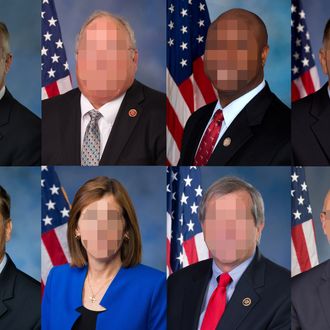
So you want to know why partisan polarization in Washington is such an overpowering force these days? There are multiple reasons, some dating back to the ideological “sorting out” of the two major parties that began occurring rapidly in the 1960s. But another factor is more prosaic, as the Washington Post’s Paul Kane explains:
>Of the 25 least known senators, ten are running for re-election — nine of them Republican — as relative unknowns, with roughly 30 percent of their voters unable to form an opinion of them. That list includes Sens. Rob Portman (Ohio), Mark Kirk (Ill.) and Pat Toomey (Pa.).
It used to be that local TV stations and newspapers provided steady and usually favorable coverage of their members of Congress, touting their doughty deeds both at home and in Washington. Not so much anymore:
A prime cause of this fight for name recognition is the increasingly fragmented media in which partisans largely receive their news from ideologically driven cable news and social media.
Middle-of-the-road voters, reliant on their local news, are often left in the dark.
Overall, there are more reporters covering Congress than ever, except they increasingly write for inside Washington publications whose readers are lawmakers, lobbyists and Wall Street investors. A Pew Research Center study released earlier this year found that at least 21 states do not have a single dedicated reporter covering Congress.
Thus, the easiest way to become known if you are a member of Congress is to get “earned media” on such strident partisan outlets as Fox News, or to raise a lot of money from activists and lobbyists to inform voters of your many virtues and your opponent’s many vices via paid ads. Either of those paths takes you into the partisan and ideological fever swamps, and the more fearsome a swamp creature you become, the more attention you get.
As Bloomberg’s Jonathan Bernstein observes, this dynamic can not only make Congress more partisan, but also less productive — above and beyond the gridlock caused by partisanship itself:






























